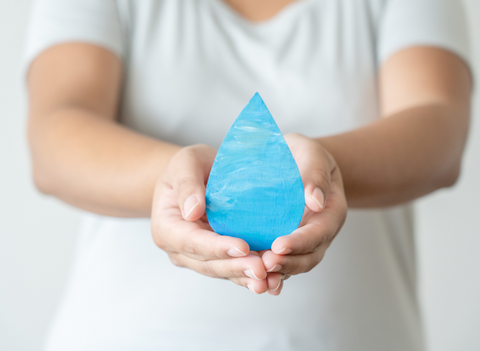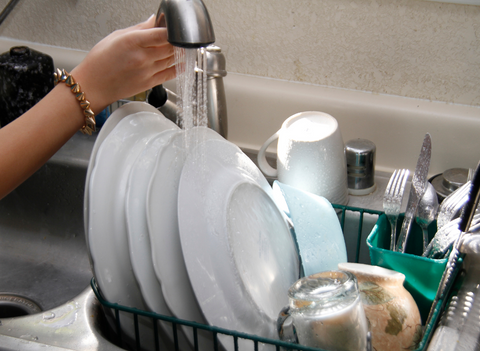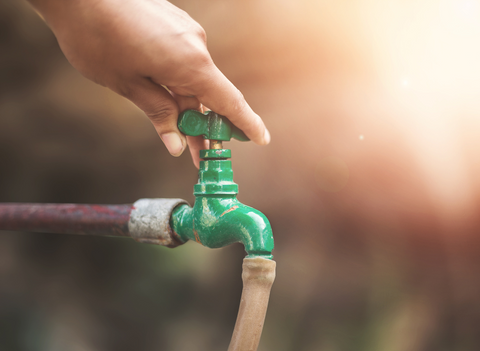In the face of fluctuating water levels and the looming threat of Day Zero, saving water has become more than just a good habit; it's a necessity, especially in South Africa. You're not just saving water for yourself but ensuring that future generations have access to this vital resource. Whether you're at home, in the office, or running a business, there are countless ways you can contribute to water conservation.
Understanding the importance of water saving techniques is the first step towards making a significant difference. From installing water-saving devices to adopting water-wise habits, every action counts. This guide aims to equip you with practical and efficient strategies to reduce your water footprint. Let's dive into how you can play your part in safeguarding South Africa's water reserves, ensuring we all do our bit to avoid Day Zero.

Key Takeaways
-
Adopt Efficient Cooking Habits: Save significant amounts of water by soaking fruits and vegetables instead of using running water, steaming instead of boiling, and reusing water where possible. These habits contribute to water conservation while also supporting a sustainable future.
-
Implement Water-Saving Cleaning Techniques: Utilise eco-friendly dishwashing methods, fix leaking taps promptly, and use water-efficient appliances. Embracing natural cleaning solutions can further reduce water wastage and protect the environment.
-
Practical Water Conservation: Simple changes in daily routines, such as meal planning, cleaning strategies, and adopting water-saving devices, can have a profound impact on reducing water consumption in both the kitchen and throughout the home.
-
Water Conservation as a Lifestyle: Emphasise that saving water is not a temporary measure but a necessary lifestyle change for preserving South Africa's water reserves and ensuring water security for future generations.
-
Every Drop Counts: Highlight the importance of each individual action towards saving water. Whether through more mindful cooking practices or more efficient cleaning habits, every effort contributes to the larger goal of avoiding Day Zero.
Efficient Cooking Habits
In the quest for water conservation, every drop counts, especially in the kitchen. Your cooking habits can play a significant role in reducing water usage. To support South Africa's efforts toward efficient water use and avoid Day Zero, here are some strategies tailored for your kitchen. By adopting these methods, you're not just saving water; you're also contributing to a sustainable future.
Prep Smart
One of the simplest ways to save water in the kitchen begins before you even start cooking. Instead of washing fruits and vegetables under a running tap, consider soaking them in a basin of water. This method is not only effective in cleaning your produce but also significantly reduces water waste. Afterward, the same water can serve another purpose, like watering your garden. Additionally, when planning your meals, opt for dishes that require minimal water for preparation and cooking. Efficient water use starts with smart planning, ensuring that water conservation becomes a natural part of your cooking routine.
Steam, Don’t Boil
A simple yet impactful switch in your cooking method can lead to notable water savings. Steaming vegetables instead of boiling them not only conserves water but often retains more nutrients, making your meals healthier. By using a steamer, you're eliminating the need to fill a whole pot with water, ultimately using less. It's a win-win situation: you conserve water and enjoy tastier, more nutritious meals. Whether you're cooking for one or preparing a family dinner, steaming your vegetables is a small change with substantial benefits for water conservation efforts.
Reuse Cooking Water
Whenever you do need to use water for boiling, think twice before you pour it down the sink. Reusing cooking water is a fantastic way to maximise efficient water use in the kitchen. Once cooled, water used for boiling pasta, vegetables, or eggs can be repurposed for watering plants or garden beds. This approach not only reduces your water consumption but also recycles nutrients back into your garden, promoting healthier plant growth. By rethinking how to manage boiling water, you're adopting a circular mindset that values every drop, aligning your kitchen habits with broader water conservation goals.
Implementing these efficient cooking habits into your daily routine can make a significant difference in your water consumption. Every step towards more sustainable living helps preserve South Africa's precious water reserves. Remember, water conservation is not just a temporary measure; it's a lifestyle change that ensures water security for future generations.
Water-Saving Cleaning Techniques

In the quest for how to save water, understanding and implementing Water-Saving Cleaning Techniques can significantly contribute to water conservation in South Africa. With water scarcity being a pressing issue, adopting more efficient water use strategies in our daily cleaning routines is not just beneficial but essential. Let's delve into some practical ways to conserve water while keeping your home clean and fresh.
Eco-Friendly Dishwashing
Handwashing dishes can be a major source of water wastage if not done mindfully. To save water, fill one basin with soapy water and another with rinse water instead of letting the tap run. This method can drastically reduce the amount of water used per dishwashing session. If you have a dishwasher, ensure it's fully loaded before running it. Modern dishwashers are designed for efficient water use and can actually save more water compared to handwashing, as long as they're used optimally. Opting for eco-friendly dishwashing soaps also helps reduce harmful chemicals that enter our water systems.
Sink Strategies
A perpetually dripping tap is more than just a nuisance; it's a significant water waster. A single tap can waste up to 20 litres of water a day if not properly fixed. Always ensure your taps are fully closed and promptly repair any leaks. Installing aerators on your taps can also help reduce water flow without compromising on water pressure, allowing you to use less water for your daily sink tasks. When cleaning vegetables, rather than using running water, soak them in a bowl of water. This not only conserves water but can also be reused for watering plants.
Natural Cleaning Solutions
Using natural cleaning solutions not only supports water conservation but also protects our ecosystems from chemical runoff. Baking soda and vinegar, for example, are powerful cleaners that can handle a multitude of household cleaning tasks without the need for harmful chemicals. For a simple multi-purpose cleaner, mix equal parts of water and vinegar in a spray bottle. This solution is perfect for cleaning windows, countertops, and even floors. By choosing natural ingredients, you're not just conserving water, but also contributing to a healthier environment.
Incorporating these water-saving cleaning techniques into your daily routine is a step forward in our collective effort to ensure water conservation. Every drop saved is crucial in sustaining our precious water resources for future generations. Remember, tackling water scarcity starts with individual actions, and together, we can make a significant difference.
Advanced Water Conservation Tips

Embracing water-saving cleaning techniques isn't just about conserving water; it's about taking a proactive step towards a sustainable future. By choosing eco-friendly dishwashing practices and fixing those pesky dripping taps, you're not only reducing water wastage but also minimizing chemical pollution. It's actions like these that make a significant difference in our environment. Remember, every drop saved contributes to the health and well-being of our planet. So let's make water conservation a key part of our daily routines and lead by example for future generations. Together, we can ensure a greener, more water-efficient world.
Frequently Asked Questions
What are eco-friendly dishwashing practices?
Eco-friendly dishwashing practices include using less water by filling one sink with washing water and another with rinsing water, using biodegradable soap, and only running the dishwasher when it's fully loaded.
Why is it important to fix dripping taps?
Fixing dripping taps is crucial because a single dripping tap can waste a significant amount of water over time, contributing to unnecessary water wastage and increasing water bills.
How do natural cleaning solutions help save water?
Natural cleaning solutions, being free from harsh chemicals, reduce water pollution. When these solutions are used, the rinsed water is safer for the environment, thus playing a part in conserving water quality.
Can changing our cleaning habits really make a difference in water conservation?
Yes, changing our cleaning habits can significantly impact water conservation. By adopting water-saving techniques and using eco-friendly products, individuals can reduce water wastage and pollution, contributing to the preservation of precious water resources.
What is the role of individuals in promoting water conservation?
Individuals play a vital role in water conservation by adopting water-saving practices, fixing leaks promptly, and using water-efficient appliances. Through conscious effort and daily choices, each person can contribute to a collective positive impact on water conservation efforts.
